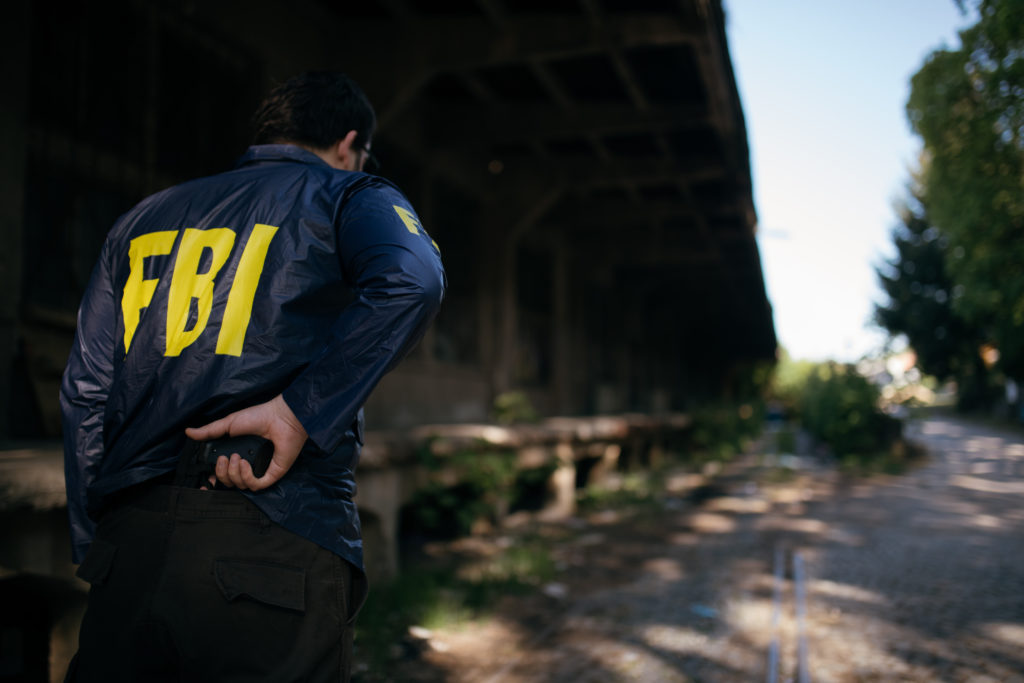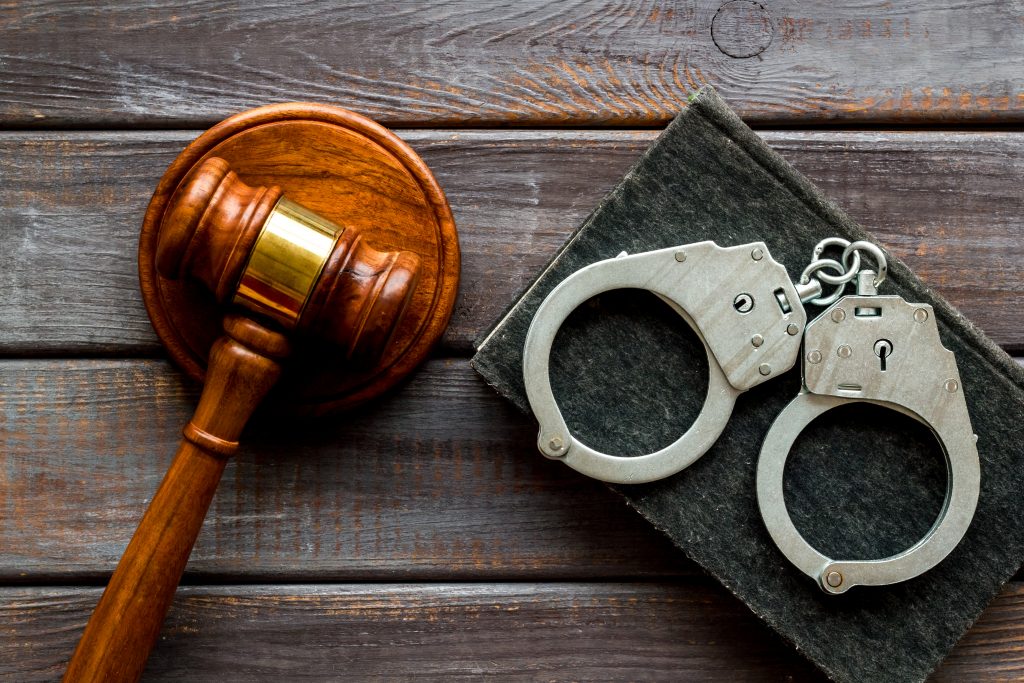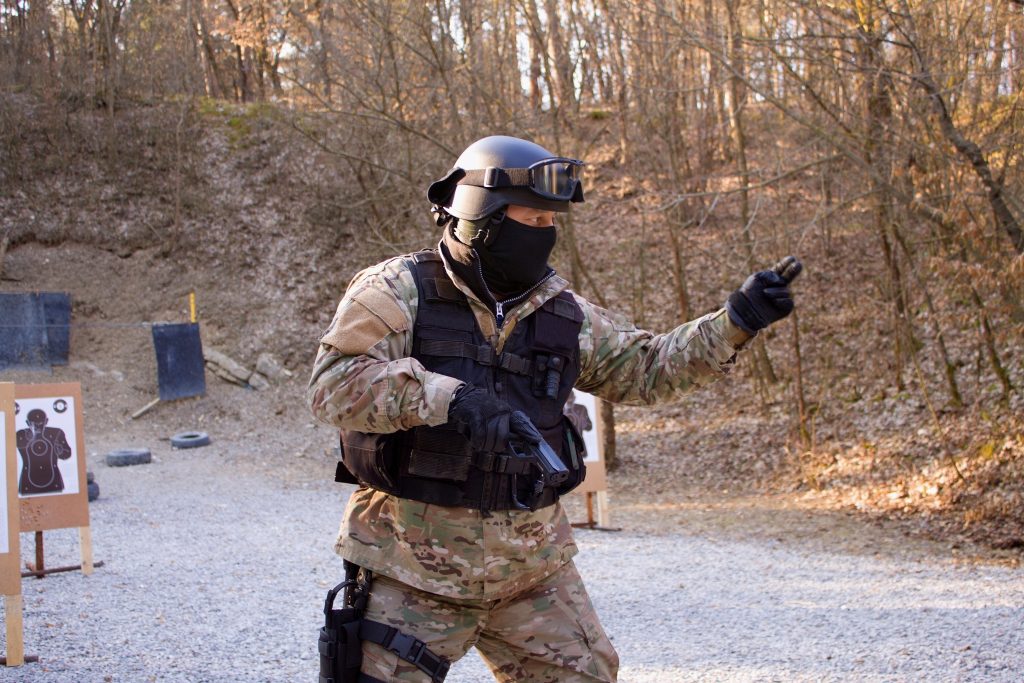Do you dream of fighting crime? Want a thrilling job where you defend your country from terrorism?
A job as an FBI agent might be a good fit.
Federal law enforcement agency professionals gather intelligence and investigate crimes. They also protect the national security of the United States.
Roles vary with the FBI, but each calls for:
- a college education
- years of professional experience
Prospective FBI agents must go through rigorous agent training. They also complete a thorough application process.
But before you begin your research into this exciting career path, you’ll need to learn the ropes.
This article answers the following questions and more.
- How to become an FBI agent?
- What are the best majors for FBI special agents?
- What is the best degree for FBI special agent jobs?
How Do You Become an FBI Agent?
Since there’s no typical day on the job, it’s important for FBI special agents to prepare for anything and everything.
But becoming a special agent takes time and effort. New agent training is tough but rewarding.
Before FBI special agent training begins, you must follow steps to become an agent.
At this stage, you shouldn’t worry about your competition because all aspiring agents go through the same process.
- Meet eligibility requirements
- Earn a bachelor’s degree
- Get professional law enforcement experience
- Complete agent selection process
- Complete basic field training
Read on for helpful tips on how to become an FBI agent.
How to Meet Eligibility Requirements?
The FBI maintains a checklist of their general eligibility requirements.
These include:
- age
- U.S. citizenship
- clean criminal record
The first step is to meet the above requirements.
For instance, you must be between 23 and 36 years old. You must also be a U.S. citizen. Additionally, you must have lived in the U.S. for at least three of the last five years.
Agents must also have a clean criminal record. You will be disqualified if you have felony charges or domestic violence convictions. Also, failures to pay child support, student loans, or tax payments will disqualify you.
What Degree Do You Need to Become a FBI Agent?
In addition to meeting the above requirements, you need a bachelor’s degree and 2-3 years of work experience. You can also qualify with a graduate degree and 1-2 years of experience, according to the official Federal Bureau of Investigation website.
Your options for FBI degrees depend on what role you’d like to fill in the agency. For example, FBI agents working in cyber security have degrees in:
- computer science
- engineering
- IT
- math
Special agents and linguists hold foreign language degrees. Some agents even have law degrees.
The point is that you can earn a degree in just about any subject. After all, there’s no one-size-fits-all when it comes to the right degree for a job with the FBI.
But what degree do you need to become an FBI agent? Are some degrees better than others?
Best Majors for Aspiring FBI Agents
FBI majors vary for aspiring special agents. The FBI states on their website that there is no right or wrong degree path.
However, some FBI majors are more common than others. The best majors for FBI special agents include:
- corrections
- criminal justice
- criminal law
- forensic accounting
- forensic science
- homeland security
- military intelligence
- psychology
If you major in psychology, plan on taking classes in:
- criminal behavior
- criminal investigations
- why people commit crimes
You can also take these courses while majoring in a subject area that’s a little different than the norm. But since the FBI doesn’t require you earn a particular major, your options are open.
Read on for another type of degree for FBI jobs and answers to your question: What Degree Do You Need to Become a FBI Agent?
Foreign Language Degrees for Aspiring FBI Agents
What degree do you need to be an FBI agent? How about a foreign language?
As stated above, you can find jobs with the FBI if you are fluent in a foreign language or know multiple languages.
Best degrees for FBI jobs as special agents or linguists include:
- Arabic
- Bosnian
- Chinese
- Farsi
- Korean
- Russian
- Spanish
- Vietnamese
One of the most desirable skills for the FBI is if you know a foreign language. You can increase your chances of being hired if you major in a language or speak it fluently.
You can also minor in a language that the FBI wants. And if you have the opportunity to study abroad and immerse yourself in a different culture than your own, it will also help.
For linguist jobs, language skills and cultural knowledge are important.
Business Degrees for Aspiring FBI Agents
What degree do you need to be in the FBI? The answers is in what interests you.
You can land a job with the FBI if you have a business background. FBI majors in business include:
- accounting
- business administration
- economics
- finance
Interested in a job as a forensic accountant?
Consider an FBI agent degree in forensic accounting.
Since few forensic accounting bachelor’s degrees exist, plan on taking related courses while earning a general accounting degree. These courses include:
- auditing
- financial statement analysis
- taxation
With a business degree and a few years of work experience, you can qualify for the following jobs:
- accounting analyst
- budget analyst
- forensic financial research specialist
Maybe you’ve worked at a bank or in finance. If your experience lines up with what the Bureau wants in a candidate, you can qualify for the next step.
Other Degrees for Aspiring FBI Agents
What degree do you need to become an FBI agent depends on what you’re passionate about.
Beyond business and foreign languages, other degrees qualify you for work as an agent.
Best degrees for FBI jobs include:
- Biology
- Chemistry
- International studies
- Physics
- Political science
Advanced and Specialty Degrees
Some of the best candidates for FBI jobs are those with law school degrees (JD) or accounting degrees (CPA or other license).
You’re also a good job prospect if you have a master’s degree or higher. Advanced degrees help you stand out among your competition.
Best advanced degree for FBI jobs include:
- computer science
- criminal justice
- foreign languages
- forensic accounting
- forensic science
- law
- physics
Other Requirements for the Job
After you figure out your best degree for FBI special agent jobs, it’s important to understand the professional experience requirement.
Being an FBI agent is demanding. Landing a job is competitive. Things that affect your chances of getting your dream job are often out of your control.
As a result, you must focus on what you can control.
- Your schooling
- Your experience
Armed with a degree, you’re ready for the next step in the process of becoming an agent.
You need at least two years of work experience to become an agent. This can be volunteer work or professional experience. You can even gain experience working with police officers.
Additionally, you should be in good physical shape in order to pass a personal physical fitness test.
Because the job requires agents be in great physical shape, you must pass a personal physical fitness test.
Competition for jobs with the FBI is fierce. But with the right education, experience, physical fitness test qualifications, and determination, you can make the cut.
Important Qualities for FBI Agents
To succeed on the job, you should have the following traits:
- Empathy. You serve the community in which you work. As a result, you should understand different cultures and what makes people unique.
- Good communication skills. To conduct interviews and deliver important information to fellow agents and officers, you must have good communication skills. You must also be able to express yourself through your writing and speech.
- Good judgment skills. A good FBI agent has strong judgment skills. Judgment skills help you solve problems in careful ways. These skills also help you solve cases that lead to arrests.
- Leadership skills. FBI agents must lead teams and cases. You must be comfortable as a visible member of a team. You must also lead when in public.
- Physical stamina and strength. You should be in good physical shape to pass fitness tests and work on the job. After all, the agent job requires stamina and strength.

Summary of Steps to Becoming an FBI Agent
As stated above, an important step toward becoming an FBI agent is to earn a bachelor’s degree or higher.
Degrees for FBI Agents
- computer science
- criminal justice
- criminology
- foreign language
- forensic accounting
The Bureau doesn’t specify FBI majors, but you need a FBI agent degree to move forward in the hiring process. Law enforcement experience also helps.
All FBI applicants should have at least two years of full-time work experience.
Work experience details are vague on the FBI website, but the Bureau requires at least two years. Professional experience may be related to your FBI agent degree or related to the core competencies that the FBI looks for in candidates.
Selection Process for FBI Agents
The next step is to complete the selection process. Potential hires must submit to multiple rounds of interviewing and testing.
During Phase I of the process, you take the following tests.
- Logic-based reasoning
- Personality traits
- Situational judgment
If you pass, you move on to Phase II.
If you don’t pass, you are eliminated from the selection process.
However, those who pass undergo Phase II testing.
During Phase II, you sit for an interview. Further testing includes:
- background investigation
- drug tests
- physical fitness tests
- a polygraph test
The final step toward becoming an FBI agent is to complete basic field training at the FBI Academy in Quantico, Virginia.
Training lasts 20 weeks.
Training is both physical and mental.
Aspiring agents learn how to use deadly force. You also cover public safety administration rules and learn how a government agency works. Agents receive 800 hours of instruction.
Training time spent in Quantico is broken into four categories.
Field Training for FBI Agents
- Academics (classroom instruction)
- Case exercises
- Firearms training
- Operational skills
Classroom training covers broad subject matter. You focus on:
- behavioral science
- ethics
- forensic science
- law
Agents-in-training gain skills in interviewing, investigation, interrogating, and report writing.
All lessons prepare you to perform criminal investigations and run counterintelligence operations. However, much of the training at Quantico takes place outside the classroom.
For instance, firearms training is a major part of the program. It is where you receive weapons orientation. In this training, you also focus on gun safety and improve your weapon-handling skills.
New agents complete 110 hours across 28 firearms training sessions.
During the operational skills portion of field training for new agents, heavy hands-on work is required. During this experiential training program, the Hogan’s Alley mock town environment is used.
Hogan’s Alley is a form of training created in 1987 to provide realistic training for new agents. Hogan’s Alley is an elaborate mock town designed to help new agents develop skills.
Operational skills training includes:
- operations planning
- surveillance work
- tactical driving
You complete all simulated exercises in Hogan’s Alley. Case exercises are also done there.
In these exercises, agents follow the steps of an FBI investigation. You start with an initial tip and work your way through the arrest of more than one subject.
After passing all categories of field training, it’s time for your graduation.
The Graduation Ceremony
Exciting. Fun. Rewarding.
These are just some of the words used to describe the graduation ceremony for FBI agents.
Graduation celebrates completing the training academy and becoming a new FBI agent. It’s an event you won’t want to miss.
After graduation, new FBI agents receive appointments at 56 locations. Unlike other jobs, you have input on where you’ll go. Decisions are based on geography preference, but also on other things.
Some agents want to be close to family. Others want to be sent to certain cities based on an area’s cost-of-living. But most agents want to go where the need is greatest.
From the classroom to the field, the life of an FBI agent is thrilling, exciting, and never the same.
Advancement for FBI Agents
Promotions are offered after your probationary period expires. As a result, you’re up for a promotion after a certain amount of time passes.
You earn advancements by:
- your written exam score
- on-the-job performance
You can also advance if you go back to school and earn a master’s degree.
Career Descriptions for FBI Agents
FBI Special Agent
Special agents are the most well-known role in the FBI. You hear about them in the media. You also see them in film and TV.
Special agents investigate criminal acts and violations of federal law. They also:
- gather evidence
- interview suspects and witnesses
- survey suspicious activity
Each day on the job brings new and unique tasks. For example, you might interview suspects on Monday and testify in court on Tuesday.
You also handle a lot of paperwork. You fill out forms, file reports, and complete records related to a case.
Special agents also focus on different crime types, such as:
- bank robbery and fraud
- crimes involving the deprivation of rights
- human trafficking crimes
- illegal gaming and gambling
- terrorism (domestic and international)
Forensic Accountant
Forensic accountants go where the money goes. They examine financial records and follow money trails. They also help insurance companies prove or disprove claims.
In this job, you present your findings to:
- businesses
- courts
- other people
But instead of dealing with criminals and suspects, as special agents do, you track illegal actions through financial records.
You’re like a hound dog searching for clues and suspicious activity.
But to become a forensic accountant with the FBI, you need more than a bachelor’s degree. In some jobs, you need accounting certification and licensing. While in others, you need a master’s degree.
Intelligence Analyst
Intelligence analysts are highly trained agents. In this job, you gather information and analyze it.
You also know how to use computers to find suspicious activity. Your findings help solve cases.
But you have to know your stuff. You need to know where to look for information and how to find it.
To prevent organized crime, you collect data from:
- law enforcement officials
- surveillance analysts
- other intelligence networks
This agent role requires a degree in computer science or a related subject.
Linguist
Linguists use their language skills and cultural knowledge to identify suspects. How do they do it? By looking at suspicious communication and information.
With a degree in a foreign language, you can land a job as an FBI linguist.
You might even work on organized crime cases involving:
- cybercrimes
- hacking
- other offenses
New FBI agents must pass aptitude tests for a chosen language. Linguists work domestically and internationally, and are highly sought after by the Bureau.
The FBI considers 9 languages critical to their investigations. However, languages listed are not limited.
- Arabic
- Chinese
- Farsi
- Korean
- Punjabi
- Russian
- Spanish
- Urdu
- Vietnamese

Surveillance Investigator
The role of a surveillance investigator with the Bureau involves working with clients and witnesses to substantiate evidence. Investigators:
- collect information
- research suspects
- note findings
They trail suspects and track their activities. If successful, their findings lead to an arrest.
Surveillance investigators do a lot of travel. They also work non-traditional hours. They use cameras to take video footage of a suspect’s activities. Once info and data are gathered, the investigator analyzes findings to uncover critical details that might lead to an arrest. Since the job requires the use of cameras and recorders, investigators must be able to use all equipment. Training is a must.
Earnings Potential for FBI Agents
Salaries vary by:
- agent level
- experience
But Pay Scale reports average wages for FBI agents of $78,000/year. Special agents earn up to $109,000/year.
Wages vary by the field office to which the agent is assigned, agent level, and experience.
For example, an entry-level FBI agent with less than one year of work experience earns about $50,000/year. Agents with up to four years of work experience earn $65,000/year.
Wages after five years on the job don’t go up much. In fact, data from Pay Scale shows FBI agents with 10-19 years on the job earn an average salary of $66,000/year.
Overall, earnings follow the pay scale set forth by the federal government.
- GS: General Salary
- SES: Senior Executive Service
- SL: Senior Level Positions
- EX: Executive Pay

Job Outlook for FBI Agents
The Bureau of Labor Statistics (BLS) reports a 7% job growth for police and detectives over the next eight years. The faster-than-average growth leads to a favorable job outlook for a career as an FBI agent.
What’s causing growth?
First, an increased interest in public safety. Second, there’s a need to fill openings from workers who retire.
Both factors impact the need to hire new agents.
Even as crime rates fall in certain areas, demand for public safety services continues to rise. As a result, about 59,000 openings for police and detectives will result over the next decade.
Additionally, about 1,300 new job openings for detectives and criminal investigators will result.
While many job openings will occur, competition is fierce for FBI careers.
You need the right schooling, degree, and training.
But with a bachelor’s degree and experience in law enforcement or a military background, you should see the best job prospects.
Related Resources:
- 30 Most Affordable Online Bachelor’s in Criminal Justice: Private Non-Profit Colleges
- 5 Great Specializations for Online Criminal Justice Students
- 5 Qualities to Look for in an Online Criminal Justice Degree Program
- Top 30 Best Criminal Justice Degree Online Programs (Bachelor’s)
- The Federal Bureau of Investigation: How It All Works
By BDP Staff



